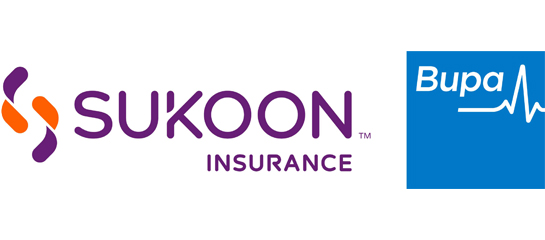Age diversity and inclusion has never been more significant

Over two-thirds (70%) of senior leaders say that age diversity and inclusion is important in the workplace
Leading health insurance providers Sukoon and Bupa Global have released the findings of a new survey on age diversity and inclusion in the UAE workplace. The survey explores the interconnected dynamics of age diversity and healthcare amongst UAE organisations.
A clear consensus is revealed in the survey; age diversity and inclusion is vital for fostering creativity and a positive working environment, according to a majority (70%) of senior leaders and decision-makers. This sentiment is echoed by almost two-thirds (65%) of mid- to junior-level employees, underscoring its significance across the workforce.
A Shift in Workforce Dynamics
For the first time in history, there are now four to five generations simultaneously working side by side. This includes Gen Z, Millennials, Gen X, Baby Boomers, and even members of the Silent Generation who continue to work well into their late 70s and early 80s. While the UAE is currently seeing up to four generations in the workforce, it is expected that a shift to five generations will follow in line with global trends observed in countries such as the UK, USA, and Australia.
Dean Pollard, General Manager, Bupa Global Middle East and Asia, emphasises the evolving nature of ageing and the requirement for organisations to adapt so they can accommodate a multi-generational workforce. He said, "In this age of increased longevity, we must recognise that the concept of ageing is undergoing a transformation. We are stepping into a new era of work that demands a swift shift in our mindset. Ensuring healthcare inclusivity is not merely a means to support present individuals; it is also a vital step in reimagining the healthcare landscape for the generations to come."
What Age Diversity Means in the Workplace
When asked what age diversity means to them in the workplace, UAE employees identified "Acceptance of all ages in the workplace" as the key meaning, with over half of respondents (58%) selecting this definition. Additionally, almost half (47%) employees associated age diversity as a source of “a rich pool of experiences and knowledge transfer”.
Over half (55%) of surveyed employees have noticed an influx of younger professionals below the age of 40 into their workplaces. This finding not only reiterates the increasing number of millennials and members of Generation Z entering the job market, but also indicates the evolving composition of the workforce. Simultaneously, the survey underscores the enduring presence of experienced employees, with over one-fifth (21%) of respondents recognising an uptick in employees aged 40 and above.
This shows that in the context of age diversity, it's essential to consider not only how different age groups contribute to workplace dynamics, but also how their unique perspectives shape other aspects of their lives and needs, such as healthcare.
Tailoring Services to Individual Needs
The survey also revealed that a holistic approach to healthcare benefits is essential to cater to the diverse and evolving needs of a multi-generational workforce.
In terms of healthcare needs, dental coverage topped the list for two fifths of respondents (41%). Following closely, over a third prioritised both quality service practitioners (39%), and family cover (37%), recognising the importance of extending healthcare benefits to their loved ones.
However, the survey disclosed a significant generational trend. Respondents aged 25 to 34 (35%) highlighted the significance of mental health, reflecting a growing awareness of its importance in overall wellness, particularly among younger generations advocating for open discussions about mental wellbeing. Notably, over a quarter (27%) of employees aged 45 and above also recognised the significance of mental health.
Challenges in Retaining a Multi-Generational Workforce
Despite seeing a boom in older employees, a quarter (24%) of companies struggle to recruit and retain employees over the age of 50. Sukoon and Bupa Global’s survey showcased varying levels of employee satisfaction across different age groups. Just over two-thirds (69%) of employees aged 45 and above believe that their current company offers healthcare benefits that cater to their specific needs, compared to a higher percentage (78%) within the 25-34 age bracket.
This discrepancy highlights the importance of organisations recognising and addressing the unique healthcare needs of older employees, including age-related health concerns, chronic conditions, family-related health needs and proactively adapting their healthcare packages accordingly.
Moreover, just under two-thirds (63%) of UAE employees aged 45 and above expressed satisfaction with the current healthcare insurance package provided by their organisation, compared to 78% of employees in the 21-24 age bracket and 71% of employees in the 25-34 age group.
This finding emphasises the imperative need for organisations to not only provide comprehensive healthcare coverage, but also ensure that the coverage is aligned with the diverse expectations and life stages of their employees.
Healthcare Benefits Are Key to Differentiation
Two out of every five respondents (40%) interestingly stated that the quality of the healthcare package is a top priority when making job change decisions. This is particularly important for the age group of 21-24, where half of the respondents (50%) consider healthcare benefits a crucial factor. Additionally, when asked about their experience at their current jobs, financial recognition was observed to be the most valued benefit for employees, with a third (34%) of respondents prioritising it, followed by better healthcare (28%).
Significantly, a majority (75%) of all UAE employees desire a substantial say in tailoring their health insurance coverage to their various life stages and circumstances. Among employees aged 45 and above, this figure was 71%, and for those in the 25 to 34 age group, it reached 81%.
This trend signals a shift towards more flexible and personalised healthcare packages that cater to individual life stages, circumstances, and needs of the multi-generational workforce.
Overall, Bupa Global and Sukoon’s survey underscores the vital importance of age diversity and inclusion in the evolving workplace. As workforce dynamics shift, organisations must adapt to changing demographics and embrace age diversity to create an inclusive environment valuing unique perspectives and experiences across all generations. A significant majority of senior employees and decision-makers within organisations (66%) believe their company maintains an open approach to implementing innovative practices, structural adjustments, and behaviours, including initiatives like mental health awareness and wellbeing education, aimed at fostering a healthier and more productive work environment.
